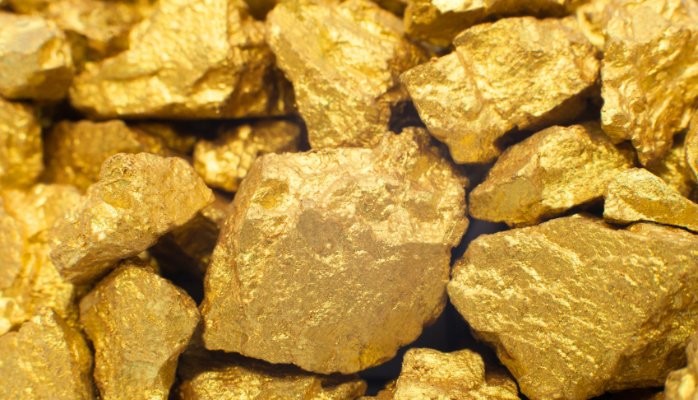
Can gold keep its shine?
Gold has been among the best performers this year.
The precious metal has outshone equity markets and high yield bonds with a gain of nearly 15%, to trade at USD 1,215 an ounce.
But can gold retain its appeal during a period of rising US federal funds rates? It gave up some of its gains in May after the Fed indicated that monetary tightening is likely in the coming months – a scenario many in the markets had come to consider improbable.
Most of gold’s rally is probably over for now. We believe the Fed will hike rates twice in 2016 – an outcome to which markets still assign only a 41% probability. This faster pace of tightening should put gold under pressure over the coming months, since higher rates raise the opportunity cost of holding the metal. As a result, it is possible that gold could slip below USD 1,200 over the next three months.
Still, we think the downside for gold is limited over a 12-month horizon, and there are three main reasons gold should be trading close to current levels in a year’s time.
1) Falling real rates
While nominal US interest rates are heading higher, we believe that real interest rates – nominal rates minus inflation – are likely to fall in the months ahead. The recent rise in the oil price and tight labor markets make it probable that the inflation rate will climb. Meanwhile, the Fed remains in go-slow mode and is unlikely to accelerate rate hikes even if inflation climbs modestly above its official target of 2%. A negative real interest rate erodes the purchasing power of cash, making real assets, like gold, more attractive.
2) Rising production costs
The price of mining gold fell in recent years due to lower energy costs and the sliding value of the currencies of many emerging nations, where the bulk of gold is extracted. Now this process is reversing. The recovery in the oil price and emerging market currencies is making mining more expensive again, which should support the global price somewhat.
3) Long-term growth in China and India
Economic growth rates in the two countries are an important determinant of the gold price. Both have a cultural affinity for gold, and jewelry demand rises as middle class incomes expand. Last year China and India accounted for almost half of global demand for the metal. US citizens, by contrast, were responsible for just 4% of purchases. While China is slowing, it still looks set for GDP growth of 6.6% this year, compared to 1.5% for the US. India is likely to be the world’s fastest growing large economy both this year and next.
Please view: ubs.com/cio-disclaimer
Full time Commodity ES Trader; Jesse Livermore Trading; Livermore Trading System; 5 Minute Investor
7yAll good thoughts that are correct but rest assured should society collapse as we know it for what ever reason, that lead (Pb) will become more valuable than gold. That said, tin (Sn) has even a greater potential to be more valuable than both, I meant to say Tin Cans in the form of beans.
Founder & Executive Chairman at Instimatch Global AG, Co-Founder CLST
7yan EMP ,caused naturally or artificially would cause a worldwide breakdown of the fragile electronics/internet infrastructure and electricity.. I suggest you read "A nation forsaken" to see how unprepared the world is for such an event. Good luck trying get your Blockchain payments working ,or ATM withdrawals.This is not an unlikely threat either.Where is the harm in having a safety net of easily recognizable gold coins which hold their value and give you peace of mind in such a scenario.Everyone should hold some coins , silver or gold.Try waiving a print out of your bitcoin account at a local farmer for a few eggs, Vienna in 1923 was an example of loss of trust in paper money.
Global Fund Custody Specialist @ U.S. Bank | Onboarding, Risk Management
7yBack to traditional natural commodities Gold /why not 👍 it can always be liquidity
Senior Investment Counselor, HSBC Private Bank
7yDr. Quincy Chen - I hear very often the opinion that gold will remain a currency substitute. However, I would posit that this view is not in sync anymore with current societal realities. Think about it - if a large crisis of some sort comes along and is big enough to force us to substitute gold for currency, how likely is it for the world economy as well as more practically for the neighborhood economy to continue? In a 1940-45 setting, with most countries having subsistence economies yes, but today - the whole flow of goods and services would instantly (or almost instantly) grind to a halt.T he Swiss government bailed out UBS partly because it had systemic importance in the country payment traffic - now if a small country like Switzerland can't live without a functioning payment system (be it due to the demise of the intermediary or of the support), how likely is a bigger country to be able to? Imagine the extreme scenario where you have to pay in gold - you own a gold bar, but cannot exchange it against currency (because it disappeared). Is your gold bar fungible enough for all sizes of purchases? Is it mobile enough to support international trade clearing? The likely answer is no, and in my opinion the fiat currency system is so embedded in the economic system that owning gold will not insulate you from the catastrophic effects of its failure.
The piece was likely written before the latest NFP report.